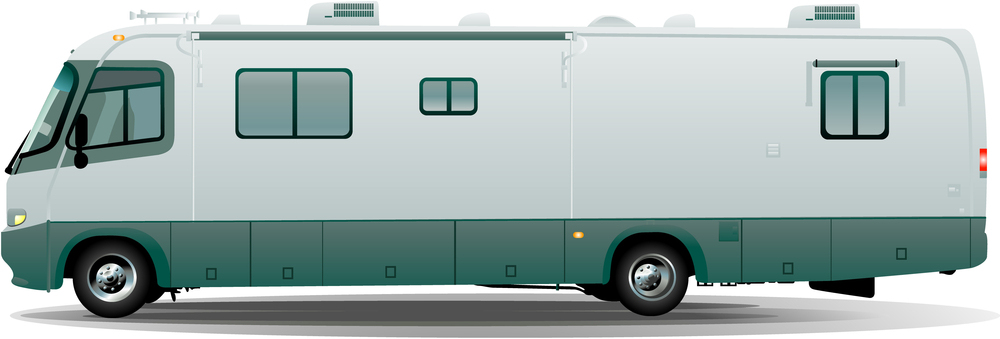12 Essential RV Maintenance Best Practices
Proper RV maintenance is essential for prolonging its lifespan, ensuring safety, and avoiding costly repairs. MobileRVService.com has connected RV owners to service providers across the U.S. and Canada for many years. We’re passionate about RVs, so we know how to distinguish quality providers from unreliable ones. On average, a well-maintained RV can last 15 to 30 years with the right maintenance. Keep reading to learn more.

1. Routine Inspections
Exterior: Check for cracks, leaks, or damage on the roof, windows, doors, and body. Inspect and reseal joints as needed.
Interior: Look for water damage, mold, or wear and tear on fixtures and appliances.
Tires: Regularly inspect tires for wear, cracks, or bulges, and check air pressure before every trip.
2. Tire Maintenance
Check Pressure: Use a tire pressure gauge to ensure proper inflation based on the manufacturer’s recommendations.
Rotate Tires: Rotate tires regularly to promote even wear.
Protect from UV Damage: Use tire covers when the RV is not in use.
Replace Tires as Needed: Don’t drive on worn-out or aged tires, even if they appear intact.
3. Roof Care
Clean Regularly: Wash the roof periodically to prevent dirt and debris buildup.
Inspect Seals: Check for and repair any cracks or gaps in the roof seals to prevent leaks.
Apply Protective Coating: Use a UV-resistant roof sealant to protect against sun damage.
4. Electrical System
Check Batteries: Test battery charge and clean terminals to prevent corrosion.
Replace Batteries: Replace batteries as needed, typically every 3-5 years.
Inspect Wiring: Look for frayed or damaged wires and ensure all connections are secure.
Use Surge Protectors: Protect your RV’s electrical system from power surges at campgrounds.
5. Plumbing System
Flush Tanks Regularly: Clean the black and gray water tanks after each trip using a tank cleaner or flushing system.
Inspect for Leaks: Check water lines and connections for leaks or damage.
Sanitize the Freshwater System: Sanitize the freshwater tank at least twice a year or as needed to prevent bacteria buildup.
Monitor Water Heater: Drain and clean the water heater regularly to remove sediment.
6. HVAC and Ventilation
Clean Filters: Replace or clean the air conditioner and furnace filters as needed.
Inspect Seals: Check vents and windows for proper sealing to maintain energy efficiency.
Test Systems: Run the furnace and air conditioning periodically, even during the off-season.
7. Appliances and Propane System
Test Propane Lines: Inspect propane tanks and lines for leaks using a leak detection spray or soapy water.
Service Appliances: Regularly check and maintain appliances like the refrigerator, stove, and water heater.
Replace Regulators: Replace propane regulators as needed to ensure proper functionality.
8. Brakes and Suspension
Inspect Brakes: Check the brake pads, rotors, and drums for wear, especially before long trips.
Lubricate Moving Parts: Grease suspension components, wheel bearings, and other moving parts to reduce wear.
9. Engine and Generator (for Motorized RVs)
Change Oil: Follow the manufacturer’s recommended oil change intervals for the engine and generator.
Replace Filters: Regularly change air and fuel filters for optimal performance.
Run the Generator: Run the generator for about an hour each month to keep it in good working condition.
Check Fluids: Monitor levels of coolant, brake fluid, and transmission fluid, and top off as needed.
10. Cleaning and Storage
Wash and Wax: Clean the exterior regularly and apply wax to protect the finish.
Prevent Mold: Keep the interior dry and ventilated to prevent mold and mildew.
Pest Control: Seal openings and use deterrents to prevent pests from entering the RV.
Proper Storage: Store your RV in a covered or climate-controlled space if possible. If not, use a weatherproof RV cover.
11. Documentation
Keep Records: Maintain a log of all inspections, repairs, and maintenance tasks.
Follow the Manual: Refer to the owner’s manual for specific maintenance schedules and procedures.
12. Safety Equipment
Inspect Fire Extinguishers: Ensure fire extinguishers are in working condition and easily accessible.
Test Smoke and Carbon Monoxide Detectors: Check batteries and functionality regularly.
First Aid Kit: Keep a well-stocked first aid kit on board.
By following these best practices, you can keep your RV in excellent condition, ensure safety on the road, and enjoy worry-free adventures. Are you ready to find a provider for some preventative maintenance or other RV services? Use our simple interface to be connected to a nearby service provider at no charge. Contact MobileRVService.com for more information on how to find a provider or how to become one. Our providers are ready to assist you with any of your service-related needs!